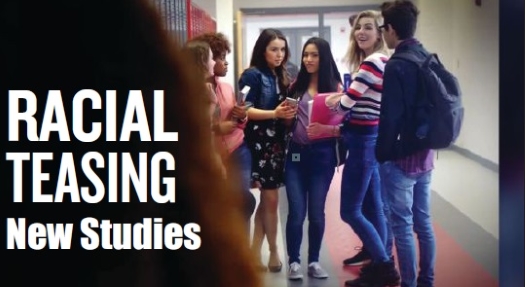Racism is a daily reality for Black teens and linked to depression
By Nisa Islam Muhammad -Staff Writer- | Last updated: Jan 15, 2020 - 9:54:48 AMWhat's your opinion on this article?

|
“It can happen when you least expect it. I was playing an online game and I guess my voice gave me away. The next thing I knew my opponent called me the ‘N-word.’ It surprised me. That wasn’t the first time. Your voice gives you away,” 17-year-old Lyndell Coles told The Final Call.
“I also experience racism when White people talk about Black people around me. I’m very light skinned so they don’t always know I’m Black and I often hear them say rude things to Black people they don’t say to White people. I just have to listen and be quiet. It makes me sad but there’s nothing I can do about it,” he lamented.
Black teenagers experience daily racial discrimination, most frequently online, which can lead to negative mental health effects, according to a new study.
Researches surveyed 101 Black youth between the ages of 13 and 17 from predominantly Black neighborhoods in Washington, D.C., every day for two weeks about their experiences with racial discrimination and measured changes in their depressive symptoms during that period. Eighty-eight percent of participants identified as African American or Black, one percent identified as African, one percent identified as Afro-Latino, two percent identified as biracial/multiracial, and eight percent identified as “other,” noted the study.
Published in December in the Journal of Applied Developmental Psychology, the study examined how often Black teens experience racial discrimination each day—either personally or vicariously and online or offline. The teens reported more than 5,600 experiences of racial discrimination in total—an average of more than five experiences per day. The title of the study is, “Daily multidimensional racial discrimination among Black U.S. American adolescents.”
“This research reflects what researchers and activists have asserted for years: Black adolescents are forced to face anti-Black microaggressions on a daily basis. Importantly, this study expands the research on the many ways that discrimination happens, whether it is being teased by peers, asked to speak for their racial group in class or seeing a racist post on social media,” lead author Devin English, an assistant professor at Rutgers School of Public Health, told The Final Call.
The experiences reported in the study, which ranged from teasing about physical appearance to overt discrimination, mainly occurred online and led to short-term increases in depressive symptoms.
Examples of discrimination included teasing by peers about wearing their natural hair, seeing jokes about their race online and witnessing a family member or friend being treated poorly due to their race or ethnicity.
“Racial teasing is important because it is one of the most common ways adolescents communicate about race,” Dr. English explained. “Critically, young people and adults, such as teachers, often see this teasing as harmless and choose not to address it. Our results, however, show several types of racial teasing are harmful for Black adolescents,” he said.
“Although public discourse can indirectly or directly blame health inequities on Black youth, our study provides evidence that racial discrimination in society is a fundamental cause of these health inequities,” Dr. English continued.
“Knowing this, people in positions of power such as clinicians, school administrators and policy makers have a responsibility to consider discrimination as a critical aspect of the daily experience and health of Black teens. Racial discrimination prevention should be a public health imperative.”
The study results reflect the types of racial discrimination Black teens experience that are most frequent when they come in contact with adults like police officers and teachers.
Black teens’ issues are further complicated when their public school counselors and teachers, the majority of whom are White and have not experienced racial discrimination themselves, often take a colorblind approach to issues of race and, as such, may fail to validate the racial experiences of Black students and cause discrimination to be more harmful.
The report explains that teachers need mandatory training in culturally sensitive approaches to racial discrimination may be helpful in preventing and addressing the negative effects of racial discrimination in schools.
“My son has told me several times about the racism that happens at his school. The bad jokes that kids say and then say they were ‘just kidding.’ The things the teachers say supposedly with good intensions, but it hurts just the same. It’s rough out here for our children,” Helene Taylor told The Final Call. She has teenagers in high school in Montgomery County, Maryland.
“It’s not safe for them online against racism, they face it at school with White teachers, they face it in the streets with White police. Where is safe for them? We have to do something to change this situation for our children. It’s only getting worse.”
INSIDE STORIES AND REVIEWS
-
-
About Harriett ... and the Negro Hollywood Road Show
By Rabiah Muhammad, Guest Columnist » Full Story -
Skepticism greets Jay-Z, NFL talk of inspiring change
By Bryan 18X Crawford and Richard B. Muhammad The Final Call Newspaper @TheFinalCall » Full Story -
The painful problem of Black girls and suicide
By Charlene Muhammad -National Correspondent- » Full Story -
Exploitation of Innocence - Report: Perceptions, policies hurting Black girls
By Charlene Muhammad -National Correspondent- » Full Story -
Big Ballin: Big ideas fuel a father’s Big Baller Brand and brash business sense
By Bryan Crawford -Contributing Writer- » Full Story






 Click Here Stay Connected!
Click Here Stay Connected!








